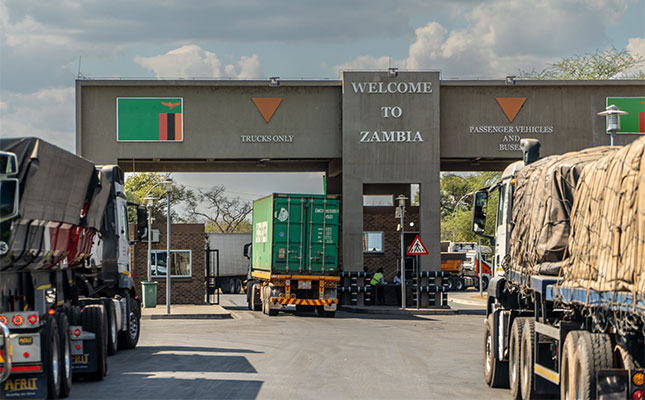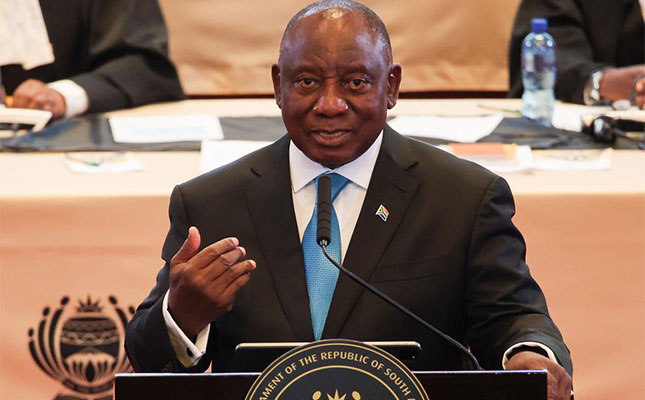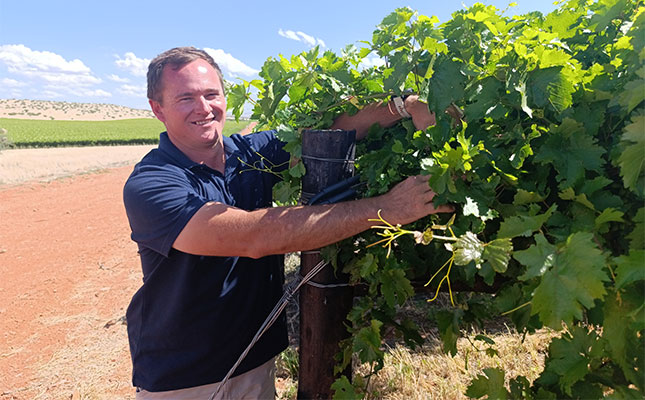Talks between Agri SA and government officials of Congo-Brazzaville about the need for South African commercial farmers to revive that country’s agricultural sector are at an advanced stage. Meanwhile, other countries also want these farmers to help feed their people.
Free land offered on mystery tropical islands
FIVE-HUNDRED THOUSAND hectares of land on four tropical islands in Asia have been offered to farmers from South Africa and Zimbabwe who are looking for a fresh start. And the land is free.
Chris Niemandt, who represents two non-profit organisations in various fields of ministry, Quantum International and Sejati Biotech, explained, “The government has made the land available initially for crop farming and after that for export crops to uplift the economy.”
Quantum International and Sejati Biotech have been in negotiation with the country’s government for over a year now, but Niemandt wouldn’t reveal the names of the islands to prevent individuals approaching the government directly and sinking his carefully laid plans. The main island has its own harbour and airport and the land is fertile and in high rainfall areas. The land is free on a 60-year lease, renewable every 60 years. There’s a small fee of R1 000 for every 100ha to pay for administration, land allocation and emigration. “This is a long-term project,” said Niemandt. “The farmers can sell all their crops as long as 20% is sold inside the country of origin. There’s a very low sales tax system even for export. We’re planning to sell some crops back to Africa because of the huge demand for food.”
He added the aim of the initiative was to help the government uplift the poor. “The locals are hard-working and just need the opportunity to prove themselves. There’s virtually no crime due to the country’s harsh laws against criminals.”
The first group of South African and Zimbabwean farmers has already been allocated land and will be starting within the next few months, once the paperwork’s been processed. The group includes dairy, game and maize farmers and game fishermen.
Development has already begun on the islands, where a Swiss investment corporation has planted the oil-bearing plant jatropha. “They’re planning 50 000ha and there’s more oil available due to the large number of palm and nut trees on all the islands,” Niemandt said.
Biodiesel manufacturing plants will also be set up on the islands. Quantum International and Sejati Biotech are currently running biodiesel and bioethanol extraction plants in Empangeni, which they designed and built themselves. The plants were originally intended to process jatropha, but since the South African government banned that crop they’re now processing others, like soya.
All farmers can apply for land on the Asian islands although the organisers are particularly hoping to offer Zimbabwean farmers a fresh start. They’ll also consider any enterprise to build up communities and the economy. “We’ll be building schools and hospitals so doctors, vets, teachers and nurses are all welcome,” Niemandt said. He also appealed for sponsorship of old implements, tractors, seed, consulting or financial assistance. – Robyn Joubert
To apply for land, e-mail a one page CV indicating your farming experience to Niemandt at [email protected].
South African farmers could go to Ghana
South African farmers might be able to settle in Ghana, West Africa. This is according to James Smith from Ghansa, an organisation wanting to move local farmers to this African country. He said the Ghanian government has agreed to allocate land to them, which they will then allocate to South Africans interested in farming with livestock, poultry and crops.
“We were in Ghana in December and saw the tremendous opportunities in agriculture and mining,” Smith explained. “Afterwards a Ghanian representative of ours contacted the new president, John Atta Mills, and he wanted to be part of such an initiative.”
Smith said the government there is keen to have South African farmers with skills and knowledge boost the country’s agriculture. Despite fertile land and lots of rain, Ghana imports basic food such as rice and chicken. Smith said farmers would have to pay for their move and import their own equipment. Also, land would not become the farmers’ property.
Import taxes won’t be charged and Ghansa will help farmers with the allocation of land, housing and schools. In return, they’ll have to pay Ghansa a percentage of their annual turnover.
Farmers with experience and knowledge who don’t have the necessary capital are also welcome to apply as Ghansa will assist them with investors, Smith said. Big farmers who want to expand their operations are also welcome.
Smith commented that although there’s not much violence in Ghana, fraud is common, but the government will protect farmers against exploitation.
According to Dr David Zounmenou, senior researcher at the Institute for Security Studies (ISS), the recent peaceful power transfer in Ghana has contributed to a stable political environment. “The former president did a lot to help farmers with input from government,” he said. “The new government is committed to the further development of the economy.”
He added that Ghana is one of the preferred destinations for foreign direct investment in West Africa. “It’s the only country in the region capable of achieving extreme poverty eradication, one of the United Nations Millennium Development Goals by 2015.”
Zounmenou admitted that much still needs to be done in terms of rural infrastructure, but the minimum is in place.
Smith said the South African members of Ghansa and some possible investors will be visiting Ghana from 1 to 10 April to finalise the details of an agreement with the Ghana government.
At the time of going to print, the High Commission of Ghana in Pretoria had not reacted to queries about this development. – Drieka Burger
E-mail James Smith at
[email protected].
Get trusted farming news from Farmers Weekly in Google Top Stories.
➕ Add Farmers Weekly to Google ✔ Takes 10 seconds · ✔ Remove anytime




